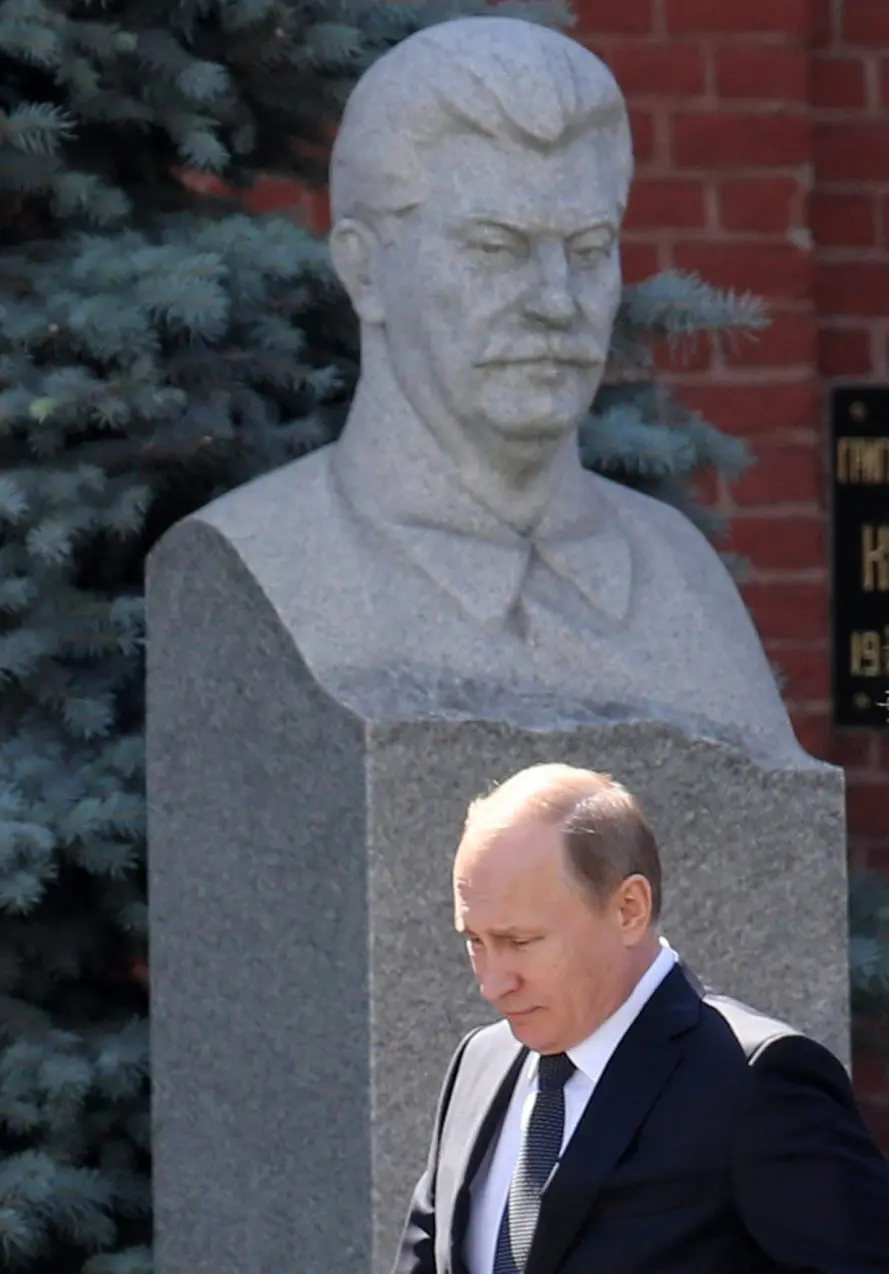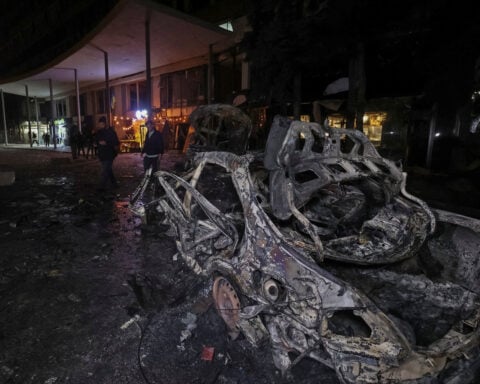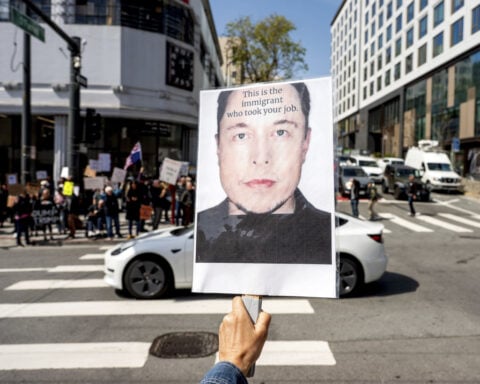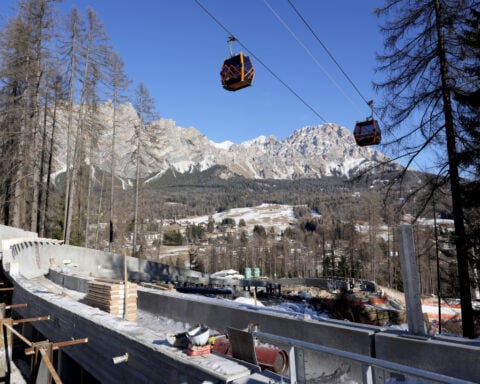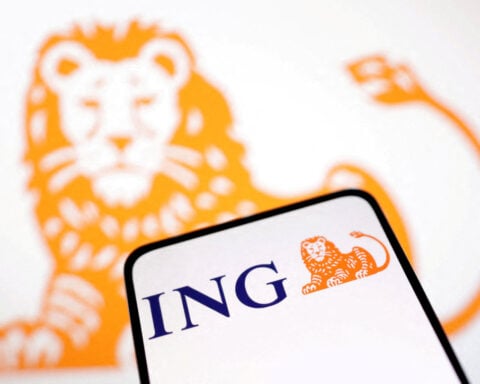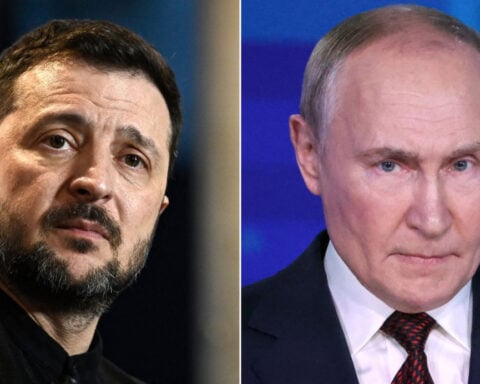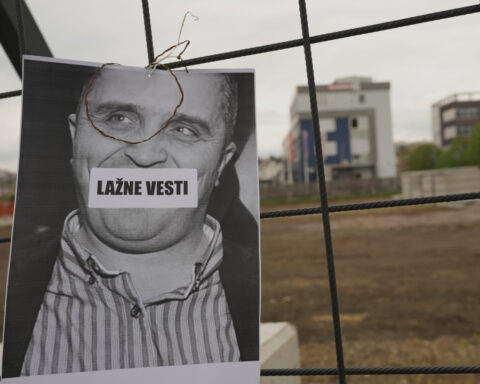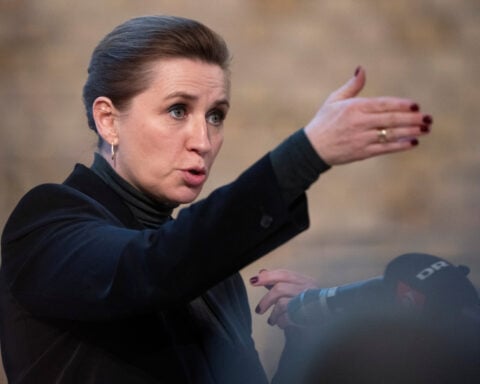In January 2024, a newly installed icon honoring Stalin in his homeland of Georgia was defaced – an act exposing deep divisions.
The number of privately funded monuments to the dictator is increasing, while the memorials to victims of political repression in Russia are disappearing. Yet, activists are still fighting to commemorate those who perished.
Whitewashing history
Putin, famously obsessed with history, has been talking about the creation of national history textbooks since 2013. In August 2023, Putin’s wish was finally granted when one of his closest associates, former Minister of Culture Vladimir Medinsky, presented new textbooks for 10th and 11th grade students: two in Russian history and two in World history. Medinsky co-authored all four.
The 10th grade textbooks cover the period from 1914 to 1945. The 11th grade textbooks cover history from 1945 to the present day and include sections on the current Russian-Ukrainian war, called in Russia a “Special Military Operation” as an official euphemism.
Warping historical narratives
The new school textbooks maintain some nuance in their coverage of Stalinism, yet that nuance can be described as “yes, but,” which makes it even more effective in warping the historical narrative.
The 10th grade Russian history textbook, for example, briefly mentions the dramatic consequences of collectivization of Soviet agriculture, including the 1932-33 man-made famines in Ukraine, Kazakhstan, North Caucasus and other regions. Yet it puts the blame exclusively on the poor harvests and mistakes of the local leadership rather than the Stalinist policies that caused and exacerbated the famines. Ukraine’s great famine, or Holodomor, in particular is considered by many historians and international organizations to be a genocide.
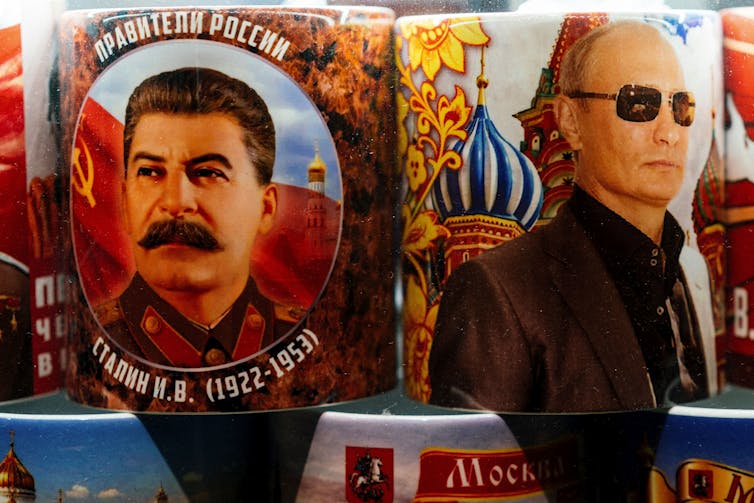
Mugs decorated with images of Russian President Vladimir Putin and Soviet leader Josef Stalin are seen on sale among other items at a gift shop in Moscow on March 11, 2020.
Additionally, in the section on World War II, the students learn that the “collective feat of the peasantry” during the war would have been “impossible in the case of the domination of the private landholdings” – in other words, it was only possible under the Soviet system.
The Russian history textbook briefly mentions the “Great Terror” of 1937-38, in which millions were arrested and an estimated 700,000 to 1.2 million were executed. Mention is also made of the personal role of Stalin, while also emphasizing the role of private denunciations and authorities of various Soviet republics and regions. But the creator of the Soviet secret police and an architect of the post-revolutionary “Red Terror,” Felix Dzerzhinsky, is praised for his role in “combating counter-revolution,” “creation of the professional educational system” and “restoration of the railroads.”
All national histories are inherently biased, even in democratic societies. Medinsky’s textbooks are, however, a distortion of history. The authors lose any attempt at objectivity while discussing Soviet foreign policy as always defensive and serving to protect everyone whom the USSR occupies and annexes.
The whitewashing of Stalin and his crimes is, I believe, crucial for understanding Putin’s creep toward ever more imperialist ideology and goals. In 2017, Putin participated in the opening ceremony for the memorial to the victims of political repressions in Moscow, during which he acknowledged the violence of Stalin’s terror and argued that it cannot be “justified by anything.” Yet his obsession with World War II led him to just that.
Putin and ideologists in the Russian leader circle have increasingly asserted that Stalin’s foreign policy and his leadership in World War II supersede his crimes against his own people. In his 2020 article in the U.S. journal National Interest, Putin praised Stalin for his great “understanding of the nature of external threats” and actions that he undertook to “strengthen the country’s defenses.”
The war on historical memory
The more aggressive Russia’s politics are, the more protective the state is over the Soviet historical legacy. Since 2020, Moscow authorities have not allowed demonstrations traditionally held in Moscow on Oct. 29 to commemorate victims of the Great Terror of the 1930s.
In December 2021, Russian authorities ordered the “liquidation” of the human rights group Memorial , fully unleashing the war on historical memory. The organization, which was among the three recipients of the Nobel Peace Prize in 2022, was blamed by the Russian Supreme Court for “distorting memory about the War,” “rehabilitating Nazis” and “creating a false image of the USSR and Russia as terrorist states.” It is not a coincidence that an attack on the organization that for decades documented the Soviet terror came in the midst of the anti-Western and anti-Ukrainian hysteria and right before the full-scale invasion of Ukraine.
Memorial, however, still stands, despite immense pressure from the authorities, attesting to the great power of resistance.
In the newly written Putinist narrative of history, the state and its expansion is always at the center, just as it was during Stalinism. The people are treated according to a proverb favored by Stalin, which sums up his attitude toward the ruthless and brutal measures he imposed: “When the wood is cut down, the chips are flying.”

Anya Free does not work for, consult, own shares in or receive funding from any company or organisation that would benefit from this article, and has disclosed no relevant affiliations beyond their academic appointment.
Source: The Conversation

 Trump has begun another trade war. Here's a timeline of how we got here
Trump has begun another trade war. Here's a timeline of how we got here
 Canada's leader laments lost friendship with US in town that sheltered stranded Americans after 9/11
Canada's leader laments lost friendship with US in town that sheltered stranded Americans after 9/11
 Chinese EV giant BYD's fourth-quarter profit leaps 73%
Chinese EV giant BYD's fourth-quarter profit leaps 73%
 You're an American in another land? Prepare to talk about the why and how of Trump 2.0
You're an American in another land? Prepare to talk about the why and how of Trump 2.0
 Chalk talk: Star power, top teams and No. 5 seeds headline the women's March Madness Sweet 16
Chalk talk: Star power, top teams and No. 5 seeds headline the women's March Madness Sweet 16
 Purdue returns to Sweet 16 with 76-62 win over McNeese in March Madness
Purdue returns to Sweet 16 with 76-62 win over McNeese in March Madness
